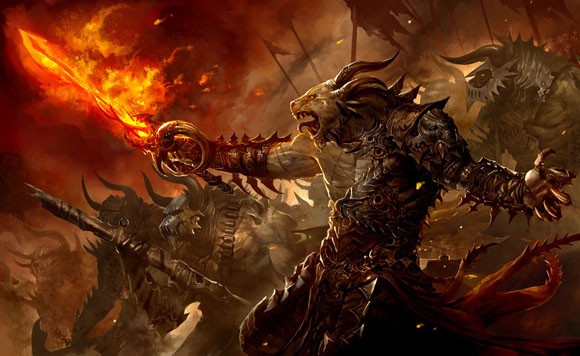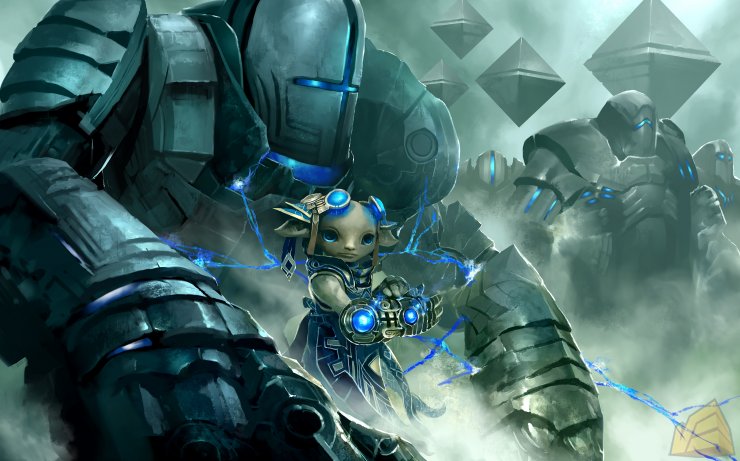BioWare recently announced that they will be shifting Star Wars: The Old Republic away from a subscription-only model towards free-to-play as a result of the number of subscribers falling bellow 1 million. Many saw this as a sign that subscription only MMOs have seen their time pass, and that’s something ArenaNet’s Chris Lye agrees with.
“I can understand the psychology of somebody who is going to take on the development of an MMO,” says Lye. “Taking on the development of an MMO period is risky enough. So people go ‘[W]ell, we’re putting all the risk into the development of this game, let’s not double-down on our risk and also try to do a whole new business model’.
“Mentally I can understand that psychology. But I do feel that any developer who wants to be successful in today’s market needs to take a really hard look and say ‘Do we really want to use a subscription, is that the best thing for this game ‘ In many cases I don’t think it is. For all we know there is a type of game out there that will continue to benefit from a subscription model, I’ve just not heard of it yet.”

While World of Warcraft continues to make money from the subscription model and many AAA products, like The Secret World, are launching in a subscription only format, these are now far outweighed by the number of subscription games that have made the shift to free-to-play over the past year.
“If you’re an up and coming business I would definitely advise you don’t naturally assume that subscription model is your business model,” says Lye. “Two years ago [developers] were all like ‘of course it’s going to be a subscription game, why would we think of anything else ‘ and now they’re backpedaling like ‘No, no, it’s not necessarily a subscription game, we haven’t decided our business model.’ Now there’s an awareness in the industry that requires a serious amount of thought as to whether you will support the subscription business model. The notion of the AAA launch-and-leave type game is declining. There’s much more emphasis on building a long term relationship with the community.
“I think that any developer who is looking to do an online game and wants to retain a long tail of an online community that they’re going to continue to work with has to seriously consider is subscription the best model or has that really been ridden to death A lot of players are telling us ‘we don’t want to be locked into a subscription, we want an a la carte model of what we spend our money on.'”
While microtransactions are generally what make up the majority of the revenue for free-to-play games, not every player will be willing to pay for them. In fact, in most games less than 3 percent of players will ever pay any money for virtual items of any sort.
“Some amount of your audience is willing to pay for microtransactions and some of them simply won’t. And that’s okay. As the developer of the game you have to totally respect that,” said Lye. “There’s a good portion of the audience that will never pay for microtransactions. But you know what, they add value to the overall game and franchise by being in the game and providing people to party up with and running guilds and adding to the social fabric of the game. So you need to provide ongoing updates for both sets of audiences.”

When you subtract the subscription from an MMO, you also increase the player base vastly. This has both advantages and disadvantages as it tends to bring less committed, more cynical people into the mix and Lye acknowledged that ArenaNet is trying to stay ahead of that for Guild Wars 2.
“Does the business model incline the community toward a certain negativity In the case of Guild Wars 2 that’s definitely been a concern of our community team. Small games with small communities are easier to control and generally they’re better behaved. And the more blockbuster your title goes, you’re more likely to bring in a lot of people you can’t always control and can’t always moderate. There’s a relationship between the size of communities. Does free to play naturally blow the size of your community out the door It’s definitely a concern.”
“It’s definitely something we pay attention to. But without having the experience of having our live community under our belt I’m hesitant to make any broad statements about that because I want to see how it goes. I can acknowledge we do expect the Guild Wars 2 community to be significantly larger than the Guild Wars community and we will make sure it stays a healthy and helpful community to anyone new to the game.”
Source: Polygon

